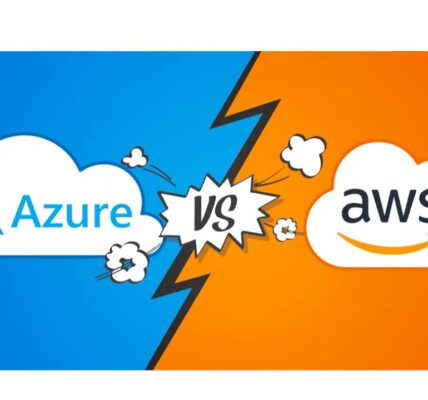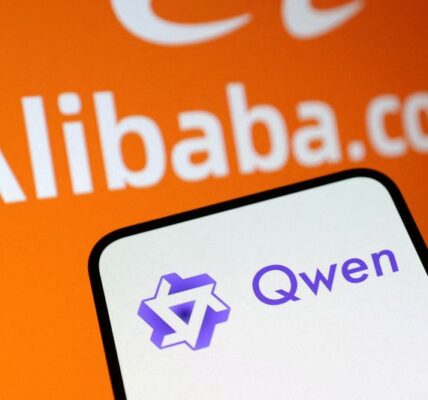Most people still Google or use ChatGPT but what if I told you there’s a tool that merges the two and shows sources live from the web? Meet Perplexity: the underrated AI search engine that might just replace both.
Introduction to Perplexity AI
In a world overloaded with information and overflowing search results, Perplexity AI has emerged as a breath of fresh digital air. This revolutionary tool combines the best of conversational AI with the speed and accuracy of real-time web search. But how is Perplexity AI different from ChatGPT or Google Search? That’s exactly what we’re diving into.
If you’re a blogger, student, marketer, or freelancer tired of jumping between tools, Perplexity might just be your new best friend.
What Makes Perplexity AI Unique?
Real-Time Web Search Integration
Perplexity AI’s biggest flex? It pulls real-time information from the web. Unlike ChatGPT, which relies on static training data, Perplexity fetches up-to-date sources as it answers your questions. This is perfect for users who need current facts, news, or data analysis.
Cited Sources for Every Answer
Tired of hunting down references? Perplexity solves that. Every answer comes with footnotes or direct citations. This not only boosts credibility but also saves time especially for students and researchers.
Conversational Search Format
Google gives you pages. ChatGPT gives you answers. Perplexity? It gives you both. It lets you follow up your query conversationally, refining your topic and digging deeper without starting over.
How ChatGPT Works
Strengths of ChatGPT
OpenAI’s ChatGPT is a powerhouse of creative and conversational language generation. It’s ideal for:
-
Writing blogs, emails, or code
-
Brainstorming ideas
-
Having casual or educational conversations
ChatGPT shines when creativity meets computation. And with GPT-4-turbo, it’s smarter than ever.
Limitations of ChatGPT
However, ChatGPT doesn’t pull fresh information from the web. It’s limited to its last training cut-off. That means if you ask about recent events or niche stats, you might get outdated or even fabricated responses (aka hallucinations).
Understanding Google Search
How Google Organizes the Web
Google indexes billions of web pages and uses algorithms to deliver what it thinks is the most relevant link. It doesn’t answer your question directly, it just sends you to places that might.
Strengths of Google Search
-
Massive reach
-
Advanced SEO-based ranking
-
Visuals, videos, and shopping
Challenges with Google Search
Let’s be honest: sifting through “10 blue links” isn’t anyone’s idea of fun. Google’s results are often cluttered with ads and SEO-optimized fluff. That’s a pain point especially for researchers and marketers.
Key Differences Between Perplexity AI, ChatGPT, and Google
| Feature | Perplexity AI | ChatGPT | Google Search |
|---|---|---|---|
| Real-Time Web Data | ✅ Yes | ❌ No | ✅ Yes |
| Conversational Format | ✅ Yes | ✅ Yes | ❌ No |
| Source Citations | ✅ Yes | ❌ No | ❌ No (Indirect) |
| Ad-Free Experience | ✅ Yes | ✅ Yes (Paid) | ❌ No |
| Answer Summarization | ✅ Yes | ✅ Yes | ❌ No |
| SEO Overhead | ❌ Minimal | ❌ Minimal | ✅ High |
Use Cases of Perplexity AI
For Content Creators and Bloggers
Creating content fast while keeping it accurate is tough. Perplexity helps by providing citations, summaries, and trends without bouncing between tabs. This boosts your output without compromising quality.
For Students and Researchers
It’s a godsend. Instead of juggling academic databases and search engines, students can use Perplexity to get citation-rich answers instantly. No fluff, just facts.
For Freelancers and Knowledge Workers
Time is money. Perplexity delivers concise, accurate responses that freelancers can trust. Whether it’s marketing research, client reports, or article writing, it shortens your workflow dramatically.
Why Perplexity AI Appeals to Modern Users
Saving Time While Maintaining Credibility
Imagine spending an hour researching only to discover you’ve got outdated information. Perplexity eliminates that. With a single query, you get fresh, relevant, and sourced content in seconds.
Bridging the Gap Between Search and Answer
Google gives you doors to open. ChatGPT gives you possible guesses. Perplexity opens the right door, gives you the answer, and shows you where it found it. That’s the trifecta.
Limitations and Areas of Improvement for Perplexity AI
No tool is perfect. Here’s where Perplexity could improve:
-
UI can feel barebones for advanced researchers.
-
Some sources may lack academic credibility.
-
Lacks API access for large-scale automation (compared to ChatGPT Pro or Google’s APIs).
Still, these are minor compared to what it offers.
Future of Search: Is Perplexity the New Google?
Will Perplexity AI replace Google?
Probably not in the traditional sense but that doesn’t mean it won’t reshape how we search. The idea of a Google killer has been tossed around more times than we can count. From DuckDuckGo’s privacy-focused model to Bing’s AI integrations, plenty of platforms have tried to dethrone the search giant. But here’s the thing, Google isn’t just a search engine anymore. It’s an ecosystem. From Gmail to Maps to YouTube, Google is deeply embedded in our digital lives.
That said, Perplexity AI is doing something Google isn’t: rethinking the very philosophy of search.
Instead of overwhelming users with thousands of results, ads, SEO-optimized fluff, and sponsored content, Perplexity aims to deliver answers; clean, sourced, contextual answers instantly. And let’s be honest, that’s a game-changer for anyone who’s ever lost 20 minutes scrolling through blog spam for one simple stat.
Perplexity as a Companion, Not a Replacement
Think of Perplexity not as a Google replacement, but as Google’s smarter, faster cousin who knows how to get to the point. Google is still essential for exploring broad topics, browsing stores, or watching videos. But for deep knowledge, reliable citations, or real-time summarized content, Perplexity is the tool of choice.
And unlike ChatGPT which, unless connected to third-party plugins, won’t fetch new info—Perplexity is like your hyper-informed librarian friend who reads every credible source online right now and gives you a neat summary, complete with footnotes.
What If Search Was Built in 2024?
If someone were to design search from scratch today, in the age of LLMs, AI agents, and productivity hacks, it wouldn’t look anything like the current Google. It wouldn’t flood you with links or ads. It would understand natural language, ask clarifying questions, provide just-in-time information, and ensure transparency in sourcing.
That’s exactly what Perplexity is doing.
It’s built for:
-
Students who don’t want to click through 10 pages to find one citation
-
Bloggers and journalists who need accurate info fast
-
Knowledge workers who want a high signal-to-noise ratio
In essence, Perplexity offers a vision of search that prioritizes user intent, context, and credibility over clicks, views, and ad revenue.
Will Google Catch Up?
Absolutely. In fact, it’s already trying with Search Generative Experience (SGE), Bard, and AI Overviews. But Google’s problem is legacy. It has to maintain its ad empire and manage billions of users with expectations rooted in traditional search behaviors.
Perplexity doesn’t carry that baggage.
It’s lightweight, fast, and laser-focused on one thing: giving you the best answer, not the best click.
So no, Perplexity may not replace Google. But in many use cases especially those centered around learning, summarizing, and citing, it already beats Google hands down.
Conclusion
Perplexity AI is carving a niche where credibility meets convenience. It’s not just an AI chatbot. It’s not just a search engine. It’s a smart, hybrid tool tailored for those who value speed and accuracy.
Whether you’re a student citing sources, a blogger writing high-converting posts, or a researcher chasing the bleeding edge of knowledge, Perplexity AI might just become your secret weapon.
Read Also Meet Qwen3: Alibaba’s AI Beast That Outperformed Gemini and DeepSeek-R1
FAQs
What is Perplexity AI used for?
Perplexity AI is used for getting fast, accurate, and sourced answers to complex questions in a conversational format.
Does Perplexity AI use real-time data?
Yes, it integrates live web search to provide updated information with citations.
Is Perplexity AI better than Google?
It depends on your needs. For direct, cited answers—yes. For broader browsing or multimedia, Google still leads.
Can Perplexity AI replace ChatGPT?
Not exactly. Perplexity is more fact-focused, while ChatGPT is better for creative or open-ended tasks.
Is Perplexity AI free?
Yes, there’s a free version available with advanced features accessible via premium plans.




